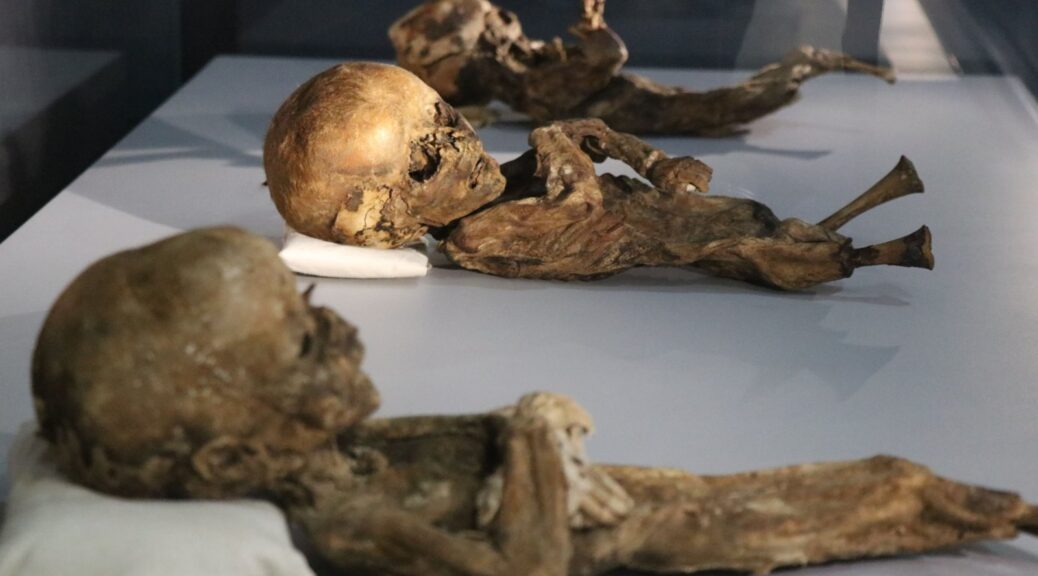Cats and babies: Thousand-year-old mummies in Turkey’s Aksaray
Cat, baby and adult mummies in Aksaray, the gateway to Cappadocia with its historical cultural riches and known as the first settlement of Central Anatolia, have been enchanting visitors at a museum where they are on display.

At the Aksaray Museum, which houses Turkey’s first and only mummy section, there stands on display a total of 13 mummies, consisting of cats, babies and adult humans from the 10th, 11th and 12th centuries unearthed in excavations in and around Aksaray.
Aksaray Museum Director Yusuf Altın provided information on the mummies, which are preserved in showcases with special heating and cooling systems.
“With 13 mummies in our Aksaray Museum, we are the only museum in Turkey with a mummy section,” Altın said. “There is one mummy in each of the Amasya and Niğde Museums, but our museum has the only section exhibited in this way … in our country.”
“The mummies in our museum were found as a result of the excavations in the churches in Ihlara Valley. Some of our mummies were found in the churches built about a thousand years ago in Çanlı Church,” he stated.


Altın pointed out that the embalming technique in Turkey was different compared to Egypt.
“Of these mummies, the baby mummy is very technical work in itself. Because the mummification technique in our country is different from the mummification technique in Egypt.
In this technique, after the person dies, the internal organs of the corpse are removed, the wax is melted and the corpse is covered with a layer of glaze. Then it is covered with fabric and shroud.
It is buried in the ground in this way and the corpse remains preserved for centuries after it dries. We bring our mummies from these excavations to our museum and exhibit them. In particular, we also exhibit the embroideries of necklaces, booties and shrouds on them.”
Yusuf stated that a cat loved by its owner was also preserved with the mummification technique and that a cat mummy was found during the excavation efforts.
“We have another mummy, the cat mummy, which especially attracts the attention of our children.
Our cat mummy was covered with wax and preserved, probably because it was loved by its owner. So, we have been displaying it in our museum,” he said.
“All of our mummies are from the 10th, 11th and 12th centuries. So, they are almost a thousand years old.”
